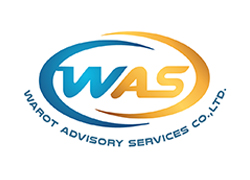FOREIGN INVESTMENT
Thailand continues to be a significant market for foreign investors. In 2022, the Thai Board of Investment (BOI) approved more than 2,000 projects worth USD19.5 billion in total, much of which came from foreign direct investment (FDI).
This article explores key legal areas and highlights certain legal issues that in-house counsel should consider in structuring investments in the country. Specific areas of focus are laws and regulations related to foreign investment, likely structures that investment will adopt, available investment incentives, land ownership rights, thin capitalisation rules and prescribed debt-to-equity ratios, foreign exchange controls, and the repatriation of dividends and capital.
Choosing appropriate structure

Client Director at Axis Legal in Bangkok
Tel: +66 2670 0140 1
Email: peter.burke@axis-legal.com
One of the first issues that in-house counsel will likely need to consider is the legal structure that local Thai operations should take. Factors often considered include the nature of activities to be undertaken locally, underlying tax treatment, minimum investment required to implement, whether separate legal liability from the parent entity is desirable, and the ease of doing business.
The most common structure investors tend to settle on is a locally incorporated juristic entity or private limited company. Thai private limited companies are very similar to US limited liability companies or private companies in many other countries, which are owned by shareholders and managed by directors. For instance, the liability of each shareholder in a Thai juristic person is limited to the amount of shares they hold.
While a private limited company is a suitable vehicle for most types of investment, certain types of businesses – such as life and non-life insurance, and banking – must be undertaken through a public limited company. However, establishing local representative offices tends not to be popular as they are unable to earn income and restricted to undertaking very limited functions, making them unsuitable for most businesses.
Foreign business restrictions
Determining the most appropriate investment vehicle, ownership and management structure will require a detailed understanding of Thailand’s foreign investment laws, particularly the scope of the Foreign Business Act. Restrictions on activities that can be undertaken are specified in the act and apply to any individual or legal entity classified as a foreigner and looking to undertake an activity that falls within one of the following lists:
- List 1: Activities designated as businesses that foreigners are not permitted to carry out for specific reasons, including land trading, agriculture, forestry, livestock farming, fishing, publishing and radio broadcasting;
- List 2: Activities relating to national security, art, culture, local customs, natural resources and the environment, which require special permission from the Ministry of Commerce (MOC), with the approval of the cabinet. These activities include undertaking domestic transportation, businesses relating to firearms, explosives, mining and the production of Thai silk; and
- List 3: Activities foreigners are prohibited from engaging in, where Thais are considered not yet ready to compete with foreigners, including retail and wholesale, as well as performing any kind of services other than those mentioned in lists 1 and 2, and acting as an agent or broker.
The term “foreigner” includes foreign incorporated entities and nationals, as well as Thai business entities where half or more of the shares are owned by non-Thai individuals or business entities. While the act does not restrict foreigners from participating in activities not in the three above-mentioned lists, foreign participation may also be regulated by other specific regulations.
Exemptions

Senior Associate at Axis Legal in Bangkok
Tel: +66 2670 0140 1
Email: nalinee.wichittakul@axis-legal.com
However, foreigners may engage in activities in lists 2 and 3 after being granted permission by the director-general of the Department of Business Development at the MOC, in the form of a foreign business licence or foreign business certificate.
Foreigners may also engage in restricted activities if the minimum capital exemption has been satisfied for the activity in question, or where the Thai entity undertaking such activity has been granted BOI investment privileges relating to those activities. Foreign business licences are granted case-by-case, and are issued purely on a discretionary basis. The MOC considers various factors including whether or not the business requires special skill or expertise generally not found in Thailand, whether the proposed business competes with locals, and whether Thailand would benefit by allowing the business to operate as proposed – both in terms of furthering the country’s development, and employment as well as the transfer of technology to Thailand. If granted, the scope of the licence will be worded specifically to cater for the permitted activities.
By contrast, incentives will be granted by the BOI as a matter of course if the activity falls within one of the specified BOI-promoted categories and the applicant can satisfy the required criteria. Certain BOI incentives are exclusive to geographic zones or regions.
Further exemptions to the Foreign Business Act may be available pursuant to treaties or trade agreements between Thailand and other countries, depending on the nationality of the investor.
Property ownership
In terms of the rights of foreigners to acquire real property, foreign nationals and foreign-owned entities are entitled to own condominiums subject to certain conditions, as well as leasehold interests in land (other than agricultural land). Foreigners are generally prohibited from owning freehold land.
An important consequence of receiving BOI privileges is that the BOI, unlike the MOC, can grant permission to foreign-owned companies to also own freehold land for carrying out their promoted activities. Foreigners can also own freehold land in certain recognised industrial estates.
Thin capitalisation rules
Offering considerable flexibility in structuring the funding of the local entity through shares and loans, there are no thin capitalisation rules prescribed under Thai law.
The Foreign Business Act provides that the minimum registered capital for private limited companies defined as a foreigner must not be less than THB2 million (USD58,000) where the business is not carrying on an activity restricted by the act; or not less than THB3 million where the activity is restricted under the above-mentioned lists.
Projects awarded investment incentives from the BOI are subject to debt-to-equity (D/E) ratios, depending on the industry and size of investment, usually of 3:1. Entities granted foreign business licences from the MOC are required not to exceed a D/E ratio of 7:1. Exceeding applicable limits could result in cancellation of the underlying privileges or permission.
Structure, management issues
Thai law imposes relatively few restrictions when it comes to structuring Thai private limited companies, allowing local ventures to be financed through the issuance of shares and loans. Thai private companies can be structured with different classes of shares (ordinary and preference), having different voting rights or entitlements to dividends.
In practice, such structures are sometimes used, particularly in the case of joint venture arrangements with local partners to protect the foreign investor’s position, which is limited for the purposes of the act to holding a minority stake in the underlying entity.
Day to day management of a private Thai limited company is routinely undertaken by the board appointed by the shareholders. Unless otherwise specified in the articles of association, decisions by the board are usually made by majority vote. One particular quirk of Thai limited companies is that directors cannot appoint a proxy or alternative director to attend directors meetings on their behalf although shareholders can in relation to a shareholders meeting.
Unless otherwise prescribed in the articles of association, decisions by shareholders are made by majority vote, but specific matters specified under the law require the passing of a special resolution by shareholders, which involves approval by three-quarters of the votes of the shareholders present. Matters requiring a special resolution are actions involving a change of registered capital, the issuance of new shares, amendments to the memorandum of association or the articles of association, winding-up of the entity, or approval of a merger or amalgamation.
Currency exchange control
In terms of exchange controls, there are no real restrictions on remitting foreign currency into Thailand through a recognised financial institution although, depending on the nature of the underlying remittance and status of the recipient, foreign currency may need to be converted into Thai baht within a specific time period. However, there are restrictions on remittances out of Thailand. Remitting Thai baht out is generally prohibited, and the remittance of foreign currency out of Thailand (and the purchase of foreign currency using Thai baht) requires approval from a Thai commercial bank by showing the purpose of repatriation of investment funds and the remittance in of the initial investment. Relevant supporting documents are often required.
Conclusion
To ensure that the investment is structured properly, the appointment at an early stage of reliable local counsel with a thorough knowledge of Thailand’s laws and regulations is highly recommended. The authors have seen many MoUs, heads of agreement and binding contracts signed prior to seeking advice that could not be implemented as envisaged, often resulting in commercially challenging renegotiations.

Axis Legal
1 Empire Tower, 21/F (River Wing West)
South Sathorn Road Yannawa
Sathorn, 10120 – Bangkok
Tel: +66 2670 0140 1
Email: info@axis-legal.com
www.axis-legal.com
MERGERS & ACQUISITIONS
As borders reopen and business returns to normal, the activity that supports company mergers and acquisitions (M&A) is increasing. Companies big and small are looking to M&A to boost their financial results and achieve their goals, especially when they cannot rely on organic growth to achieve the same results.
In such circumstances, M&A can be an attractive option. Companies might anticipate benefitting from synergies, economies of scale and scope, increased market power, cost reductions, customer base expansion, and integrated talent and management following an acquisition or merger with a suitable target. Since the global pandemic, there have been cases of smaller players being acquired by bigger players in order to continue operating their businesses.
It is expected that M&A activities will continue to grow in 2023, particularly through inbound investment in Thai companies as big corporations take advantage of the economic situation in Thailand after the pandemic and the depreciation of the Thai baht.
Recent developments
The Thai government issued merger control regulations at the end of 2018. Companies, lawyers and business consultants must consider these when conducting M&A activities. A number of deals in Thailand were subject to merger control regulations in 2022. One notable recent deal was the merger between Thai mobile operators True Corporation and Total Access Communication.
M&A methods

Founding Partner at Warot Advisory Services in Bangkok
Tel: +66 8 1802 5698
Email: warot@warotadvisoryservices.com
The two most common acquisition methods in Thailand are an acquisition of a target company’s shares or the acquisition of its business and assets. Share acquisition is the most common method for a company to acquire a target. It is easier to implement but due diligence must be conducted to identify risks in the target company. Indemnities and warranties should be incorporated into any share purchase agreement.
It is worth noting that the transfer of shares in Thailand is subject to stamp duty at the rate of 0.1% of the greater of transfer value or par value.
Business and asset acquisition is done where an acquirer does not want to run the risk of acquiring the target’s hidden legal and tax liabilities. This method is employed because legal and tax liabilities generally remain with the target company and are not transferred with the businesses or assets.
Nonetheless, Thailand’s Foreign Business Act may restrict foreign companies from directly holding businesses or assets. In such cases, a Thai company must be established to hold businesses or assets in Thailand. Please note:
- Other legal requirements have to be met as well; and
- Transfer of assets is normally subject to value-added tax, and certain transactional documents are subject to stamp duty and other fees in Thailand.
Joint ventures may be set up between companies (either between Thai and foreign companies, between foreign companies, or between Thai companies) to operate a business in Thailand that may require knowledge and know-how from both parties. In some cases, the joint venture companies are set up to comply with the requirement of the Foreign Business Act where the foreign companies would like to do some restricted businesses for foreign companies in Thailand.
Relevant regulations
The Foreign Business Act is the most important regulation to be considered when foreign companies conduct M&A transactions in Thailand. The act restricts and forbids foreign nationals and companies from some business activities, including most of the service businesses in the country.
For the purpose of the act’s restrictions, a foreigner is classified as a foreign individual, a company incorporated outside Thailand, or a company incorporated in Thailand that is majority-owned by foreign individuals or foreign companies. Therefore, in some cases, the foreign companies will not be able to hold more than 50% of shares in the Thai company. The Foreign Business Act is overseen by the Foreign Business Department within the Ministry of Commerce.
Thailand’s Trade Competition Act came into force in 2018, and has played an important role in M&A transactions since then. Any M&A transaction that meets the act’s requirements must obtain pre-approval or post-notification of the transactions. In short, pre-approval will be required when an M&A transaction would create a monopoly, while a post-notification will be required when the M&A transaction will result in less competition in the market.
The Office of the Trade Competition Commission is the government agency that oversees the Foreign Competition Act.
In share acquisition transactions, there is no requirement to obtain prior consent from the employees as, legally speaking, the employer is still the same. However, in acquisition of businesses or assets that involve the transfer of employees, the Labour Protection Act provides that all rights, duties and privileges of employees are assumed by the new employer, and that employees must consent to their transfer of employment.
In case where any employee does not give the consent, or does not want to work for the new employer, and the existing employer stops operations, it shall be deemed that the employment contract is terminated. In this case, the employee is entitled to severance pay from the existing employer.
The Department of Labour Protection and Welfare is a government agency that oversees the Labour Protection Act.
Other laws
If any party to an M&A activity is a public limited company or a listed company, the Public Limited Companies Act and Securities and Exchange Act will also offer important regulations that the M&A parties must consider.
The Land Code, together with the Foreign Business Act, must also be taken into account when companies plan to acquire targets with assets that include land.
It is important to note that M&A activities in different industries may be subject to different and specific regulations in each industry.
Choice of funding
In acquisition transactions, an acquirer will have to decide whether to fund the vehicle with debt or equity, or even a hybrid instrument that combines the characteristics of debt and equity.
The advantage of using debt is the deductibility of interest for tax purposes and the ease in repatriating the investment via repayment of principal. On the other hand, the payment of dividends is not deductible, and returns of capital can be an onerous and time-consuming task.
Thailand does not have thin capitalisation rules, which prevent businesses from using debt financing or international debt shifting for tax planning reasons, and determine how much of the interest paid on corporate debt is deductible for tax purposes.
Alternatively, an acquirer may use equity to fund an acquisition. However, using equity funding may not be attractive since dividends are not deductible for Thailand tax purposes and cannot be distributed unless the company is profitable. Also, a return of capital (equity) will be more difficult than a return of loan.
However, in the cases of a joint venture or investment in startups, it is more common to do equity funding rather than debt funding.
Transfer and amalgamation
The Thai Revenue Code allows a company to conduct an entire business transfer, in which the business and liabilities of one company are transferred to another company by a share swap. If all conditions are met, the entire business transfer will be a tax-free transaction.
Thailand also has an amalgamation process where two companies can merge to form a new one. This transaction should be free from corporate income tax but any tax losses in either of the original companies will be lost. Both the original companies are dissolved as a part of the amalgamation process.

Warot Advisory Services
1055/655 State Tower 31st Floor
Silom Road Silom, Bangrak
Bangkok – 10500 Thailand
www.warotadvisoryservices.com
DIGITAL ECONOMY
Thailand’s digital economy has been growing exponentially in recent years, as the country embraces new technological innovations and creates opportunities for startups and investors. The government has been actively promoting development of the digital economy with various policy and infrastructure initiatives, resulting in an increasing number of digital businesses and startups, along with a growing online consumer base.
This article assesses the latest developments in Thailand’s digital economy ecosystem, including fintech, the internet of things, blockchain and cybersecurity.
Fintech move

Partner at Chandler MHM in Bangkok
Tel: +66 2009 5152
Email: panupan.u@mhm-global.com
Marking a significant step for the fintech market, the Bank of Thailand last year released a consultation paper on the country’s financial landscape titled Repositioning Thailand’s Financial Sector for a Sustainable Digital Economy. It frames the central bank’s way forward in three strategic directions, introducing upcoming policies on technology and data leverage, environment and household finance sustainability, and resilient supervisory approaches.
Aiming to promote financial innovation and competition in the depositary institution market, the central bank plans to permit new commercial banking players in the form of virtual banks. Based on the Virtual Bank Licensing Framework, which was issued for public hearing in January 2023, the virtual banks will be allowed to provide the same scope of services as traditional commercial banks, but the operation must be performed via digital channels without any physical or electronic branches.
During the restricted phase of the first three to five years of operations, virtual banks will be closely monitored by the central bank. To progress to a fully functioning phase, virtual banks must pass evaluation criteria such as the ability to provide financial services that serve retail consumers, and small and medium-sized enterprises, which are underserved under the non-digital financial landscape, with limited available access and outreach.
The framework will be finalised into legislation around the second quarter of 2023, and the first application cycle for up to three virtual bank licences will open for six months from then. A list of first-generation virtual banks will be announced around the second quarter of 2024, and will operate by the second quarter of 2025.
On open banking, in collaboration with the Thai Bankers’ Association and the Government Financial Institutions Association, the central bank also launched the “dStatement” project in January 2022, under which commercial banks exchange digital statement data to support a digital loan application. Implementation of open banking using dStatement was declared a pioneering project.
Additionally, the Directional Paper on Sustainable Solutions to Thailand’s Structural Debt Overhang Problems, released by the central bank in February 2023, noted that more details on initiatives regarding data leverage will be available by the first half of 2023. Scope of data exchange will extend to financial operators other than commercial banks, and operators in other sectors such as utilities and insurance companies. The central bank plans to double the rate of decline in cash usage by three years, and reduce paper cheque usage by 50% within five years.
During the transitional phase where cash usage continues to diminish, cash distribution will be done through banking agents and white-label smart machines, which are the unbranded ATMs that accept cards issued by all banks, to reduce resources for cash management.
Internet of things

Senior Associate at Chandler MHM in Bangkok
Tel: +66 -2 009 5193
Email: nonthagorn.r@mhm-global.com
Thailand has seen growing receptiveness to the internet of things (IoT) by both the government and private sector. Back in early 2019, the National Broadcasting and Telecommunications Commission established a 5G artificial intelligence (AI) and IoT innovation centre in collaboration with Chulalongkorn University to test 5G that would bring about smoother and more efficient IoT experiences. Meanwhile, rules regarding the 5G auction were announced in December 2019, and the auction was successfully closed in February 2020.
The National Economic and Social Development Plan No.13 (2023-2027), announced on 24 October 2022, also promotes the use of 5G and the internet in general in various contexts – highlighting its importance along with next steps regarding internet access in the country.
In the private sector, manufacturing factories have the highest 2022 forecast value of IoT expenditure, of THB2.37 billion (USD69 million), followed by city management systems, transportation and logistics, retailing, vehicles, household management systems, public health systems, construction and worksites, and office management systems.
Utilising blockchain
To facilitate electronic know-your-customer (eKYC), the National Digital ID (NDID) has been established through collaboration between government sectors and the private sector. This digital identity verification system was developed under the regulatory sandbox of the Bank of Thailand and is designed with a decentralised concept, utilising blockchain technology to encrypt information with public key infrastructure and store it in a decentralised manner.
The system operates under the principle of “data security and privacy by design” to ensure electronic transactions are efficient, transparent and safe in accordance with international standards. The establishment of NDID aligns with the Thai government’s policies on creating a digital economy. The NDID platform is an ecosystem designed to facilitate secure and trusted communication between members for the purposes of authentication and information exchange. The platform connects three key parties:
-
- The relying party, which is a service provider that interacts directly with its customers and seeks to use the eKYC service of an identity provider, such as a securities or insurance company, that wants to verify a customer’s identity;
- The identity provider, which provides identity proofing and issues authenticators to its customers upon request by a relying party via the NDID platform – for example, a bank; and
- The authoritative source, which provides trusted information and authorises the release of customer data to a relying partner only on successful authentication by the identity provider – for instance, the National Credit Bureau or other national registry that maintains official records.
This mechanism ensures that personal information is transmitted solely between the two parties using public key infrastructure outside of the NDID platform, enhancing privacy and security.
Digital currency bridge

Associate at Chandler MHM in Bangkok
Tel: +66 2009 5119
Email: prang.p@mhm-global.com
Following the success of Project Inthanon, a collaborative partnership led by the Bank of Thailand has commenced to explore distributed ledger technology, a next step, which has been renamed the Multiple Central Bank Digital Currency Bridge (project mBridge).
Project mBridge is a cross-border payments platform that uses distributed ledger technology and wholesale central bank digital currencies (CBDCs) to facilitate efficient and low-cost international trade flows. Designed by central banks for central banks, the platform focuses on modular functionality, scalability and compliance, with jurisdiction-specific policy and legal requirements. During a six-week pilot, 20 commercial banks from Hong Kong, mainland China, the UAE and Thailand conducted real-value transactions using CBDCs issued on the mBridge platform totalling more than USD22 million. The pilot highlights policy, legal and regulatory considerations, and will continue to develop towards a minimum viable product – and eventually a production-ready system.
The pilot explores transaction types commonly used in international trade and enabling cross-border settlements in local currency, including:
1) Issuance and redemption of CBDCs between central banks and their domestic commercial banks;
2) Cross-border payments between commercial banks in local CBDCs, such as a UAE company paying a mainland Chinese company in e-CNY through their participating commercial banks on the platform; and
3) Cross-border payment versus payment foreign exchange between commercial banks in local CBDCs, such as a Thai bank exchanging e-THB for e-HKD with a Hong Kong bank on the platform.
Cybersecurity oversight
The Cybersecurity Act, 2019, now in effect, aims to oversee cybersecurity activities and set out mechanisms for combating cyber threats. In recent developments, the National Cyber Security Committee issued the Policy and Action Plan (2022-2027) in late 2022 to set out a cybersecurity framework under the Cybersecurity Act, which will draw on more regulations and initiatives regarding cybersecurity in the coming years.
Given the surge in fintech and digitisation of business processes, the Bank of Thailand, alongside the lead cybersecurity regulator, also pays keen attention to cyber threats within the financial market. Thailand has faced serious e-banking scams in recent years, so in addition to existing stringent cybersecurity measures imposed on financial operators, the Bank of Thailand rolled out new anti-fraud measures on 9 March 2023.
These include prohibition on putting links in SMS or emails sent from banks, and a requirement for each bank to set up a separate 24-hour hotline for scams and fraud. The legislative body is also considering the draft Emergency Decree on the Prevention and Suppression of Cybercrime, which will provide a more systematic approach to tackling cybersecurity threats.

Chandler MHM
17/F and 36/F, Sathorn Square Office Tower
98 North Sathorn Road, Silom, Bangrak
Bangkok 10500, Thailand
Tel: +66 2009 5000 ext.3311
Email: jessada.s@mhm-global.com
www.chandlermhm.com





























